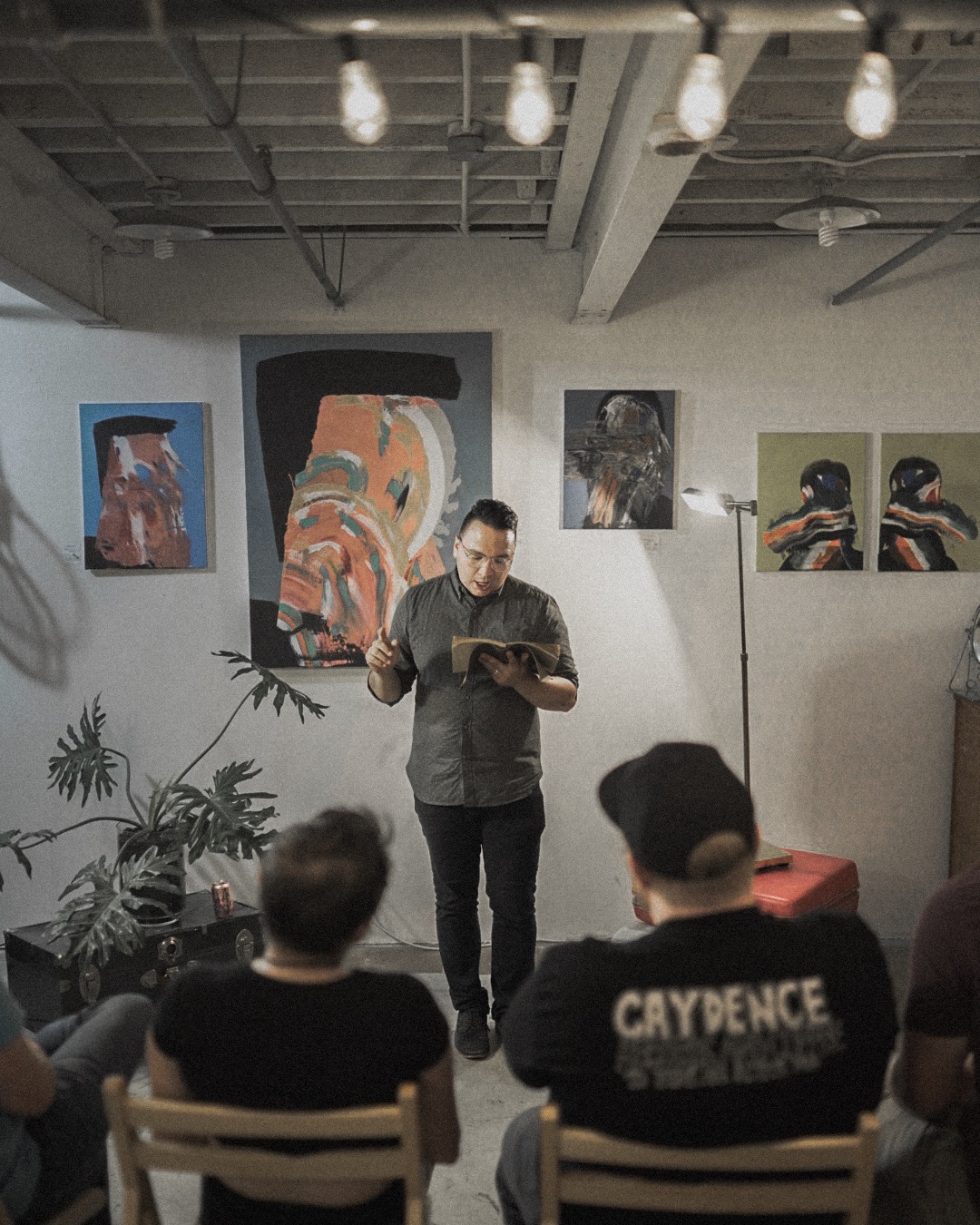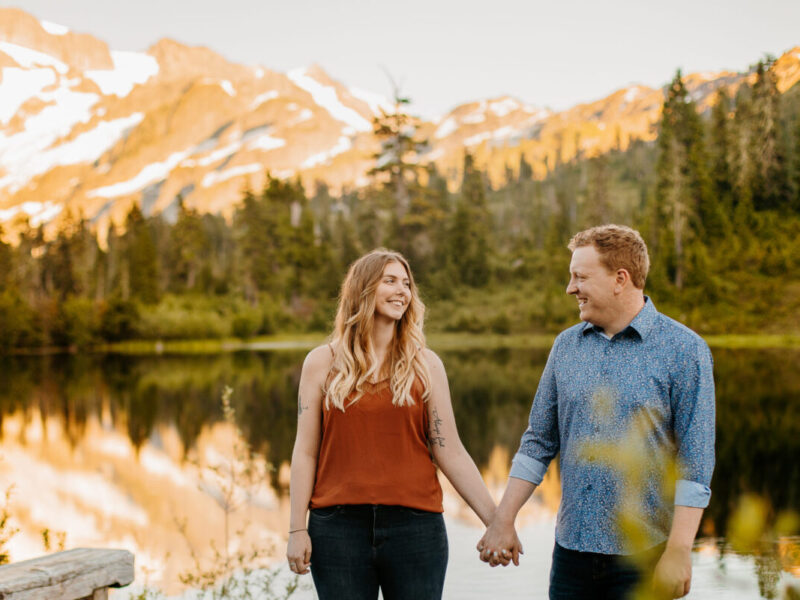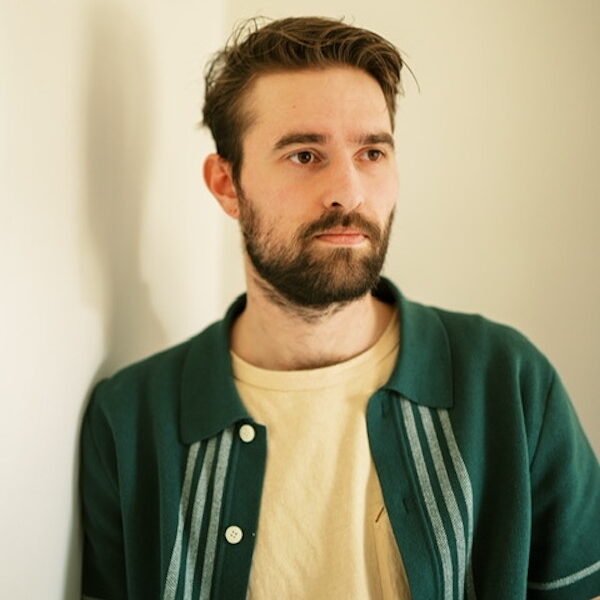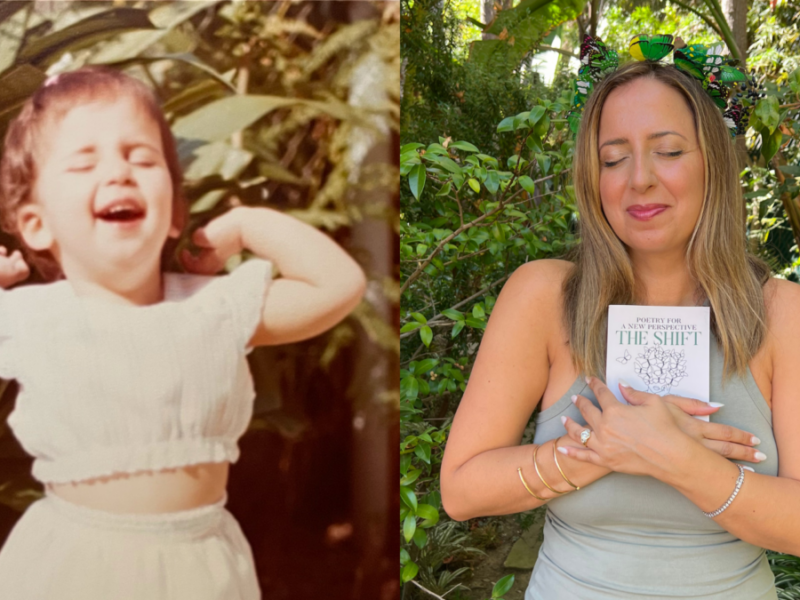“Poetry, to me, is a way in which we can view the world to help us better understand the messiness, the pain, and the beauty that exists in it.”
Robert Swaney is a mixed-race poet from Sioux Falls, South Dakota. He grew up in a rural community, raised by his grandparents due to a complicated family history. Here is where his heart for humanity began to blossom as he navigated racial differences and small-town living.
Writing since he was twelve, he eventually began performing spoken word music and composing poetry. Now, you can find him at his desk or favorite coffee shop writing and contemplating how his art can affect humanity in a positive, life-giving way.

His new collection of poetry, Lovely Seeds, explores self-exploration through the lens of the circle of life, from seed to blossom to restoration. His words reflect on learning to love the self, caring for one’s mental health, and understanding the self in our convoluted, complicated society.
Check out our interview below where Swaney discusses where his poetry journey began, finding self-acceptance in the time of social media and what poetry means to him.
You can keep up with R.H.Swaney on Instagram and listen to his spoken word on Spotify.
_______
Can you tell us about your writing journey? What led you to poetry?
When I was 11 or 12 years old, we were reading Shakespeare in class. His use of similes and metaphors resonated with me because it just made sense to me to view the world through that lens. I remember the specific verse that open the floodgates to view the world poetically:
“Eyes, look your last!
Arms, take your last embrace!
And, lips, oh you the doors of breath, seal with a righteous kiss
a dateless bargain to engrossing death!”
I’ve been writing poetry since then. In high school, I discovered ‘spoken word’ by stumbling upon a performance by Bradley Hathaway at a music festival. That style of writing and performing has now become my wheelhouse, so to speak. I’ve put out 3 EPs worth of spoken word combined with music, my debut printed collection Lovely Seeds, a spoken word record of poems from Lovely Seeds, and finally a self-published poetry collection collaboration with a photographer.
Poetry, to me, is a way in which we can view the world to help us better understand the messiness, the pain, and the beauty that exists in it.
Your debut collection Lovely Seeds is a beautiful book about self-growth, self-love and the cycle of life. What was your inspiration or thought process for creating this book to go through the same cycles as a garden – from seed to blooming to restoration?
I’ve always been intrigued by plant life. My grandfather was an avid gardener who taught me about caring for one. Combining those life experiences with the poetic lens [through which] I view the world—it just made sense to me to make my first collection in tune with that cycle.
You speak about mental health and self-love throughout this collection, very open and honestly. What do you hope readers receive from reading your words?
My very specific hope for this collection was to meet people where they are in their walk with mental health and let them know they aren’t alone in their journey.
What does self-love mean to you?
Self-love, to me, is that place we go in our heads, where forgiveness and grace toward ourselves is plenty. It is out of that foundation that we can make the decision to do the things that help us be happy, feel good, and most importantly: grow.
Do you think, in our current social climate, it is difficult for us to find self-acceptance? Do you think self-acceptance is a journey of its own?
I feel like social media plays the biggest role in the growing difficulty our society has to truly find ourselves. When we are continuously confronted with words and images of everyone else’s opinion and are only seeing the ‘cream of the crop’ photographs of people’s lives, we can easily lose sight of ourselves. I, for sure, struggle with this the most with my own self-acceptance journey. My identity can too easily get wrapped up in the likes and comments and attention I get posting online. Separating ourselves from the online world, I think, is key to really explore ourselves. It is in this true exploration we learn about ourselves, and with that comes self-acceptance.
Why do you think we need poetry? Why is it so important?
Poetry is a way to express the parts of our brain and heart that [aren’t] always easy to express. It can give a voice to someone who never could speak honestly about their experiences because they didn’t have a platform to do so. Poetry can move people to understand and love themselves better. Poetry, for readers, can put into words their thoughts and feelings in ways they had previously been unable to express.
What advice do you have for aspiring poets?
Find a couple of poets that resonate with you. Read everything you can find by them. Start writing. Write everything. Know not all of it is meant to be read by someone else. Allow yourself to grow.
To add a bit more objective answer, read A Poetry Handbook by Mary Oliver. It is my bible when it comes to developing my skill as a writer.
Who are some poets that have inspired you in your writing life and personal life?
The late Mary Oliver is, hands down, my biggest inspiration and favorite poet. The way she viewed the world has helped me learn about myself in ways I’m so thankful for.
My favorite book is I Wrote This For You by Iain S. Thomas, so I definitely had a fan boy moment when I had the opportunity to work with the same publisher (Central Avenue Publishing) who initially helped Iain get that project off the ground. Also, I’m so thankful for my peers Trista Mateer, Amanda Lovelace, Cyrus Parker, Alicia Cook, Wilder Poetry, Courtney Peppernell, and so many more I’m forgetting at the moment who inspire me and challenge me daily to keep pursuing this passion I have.




